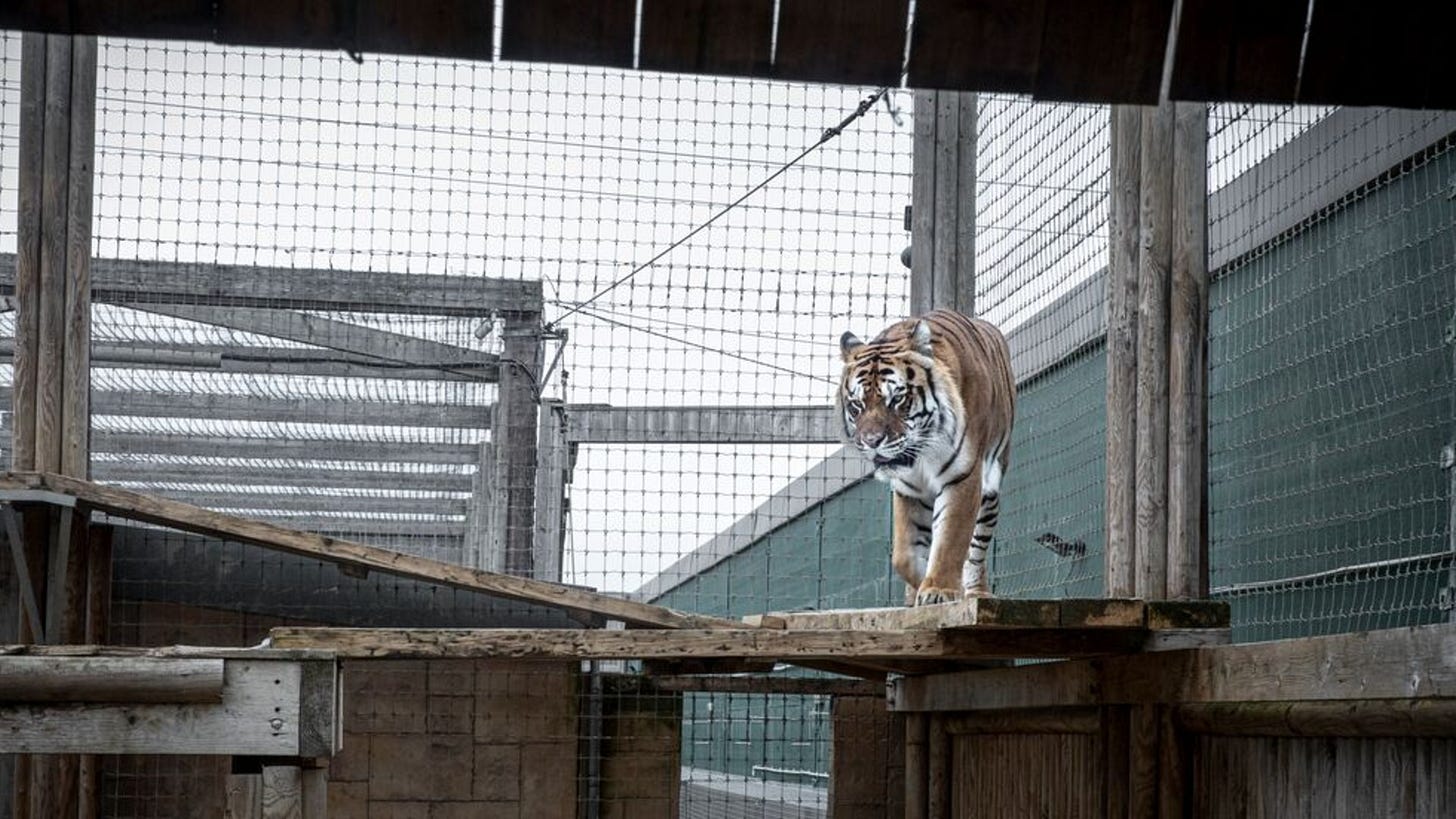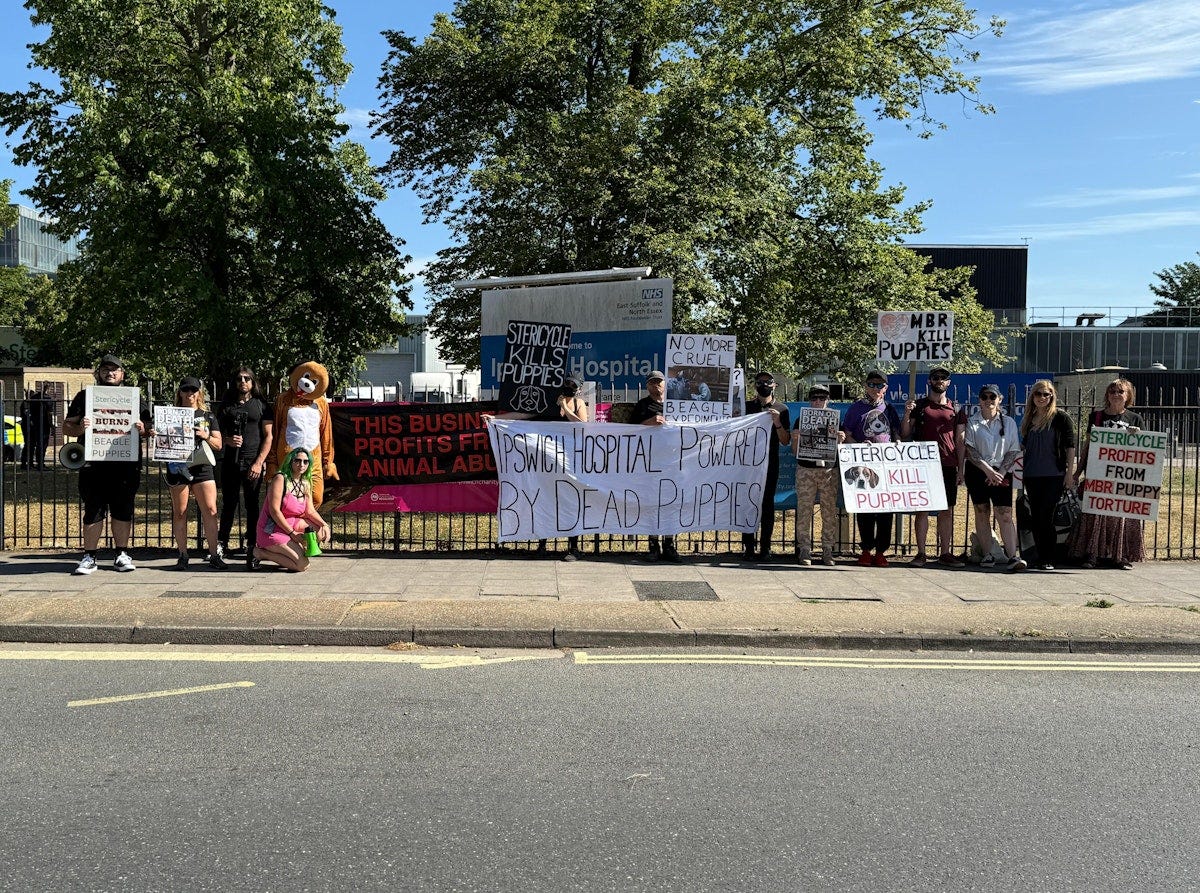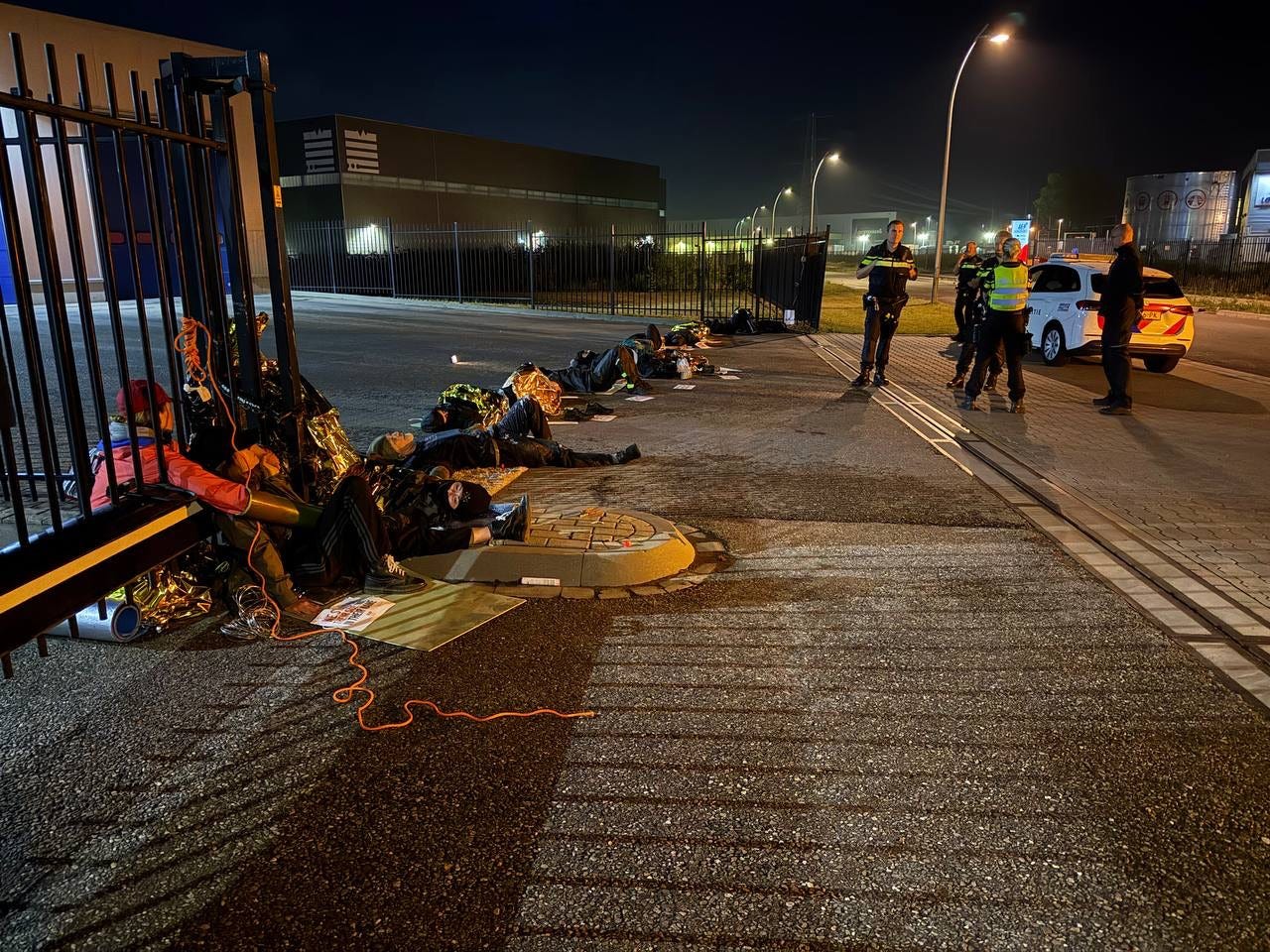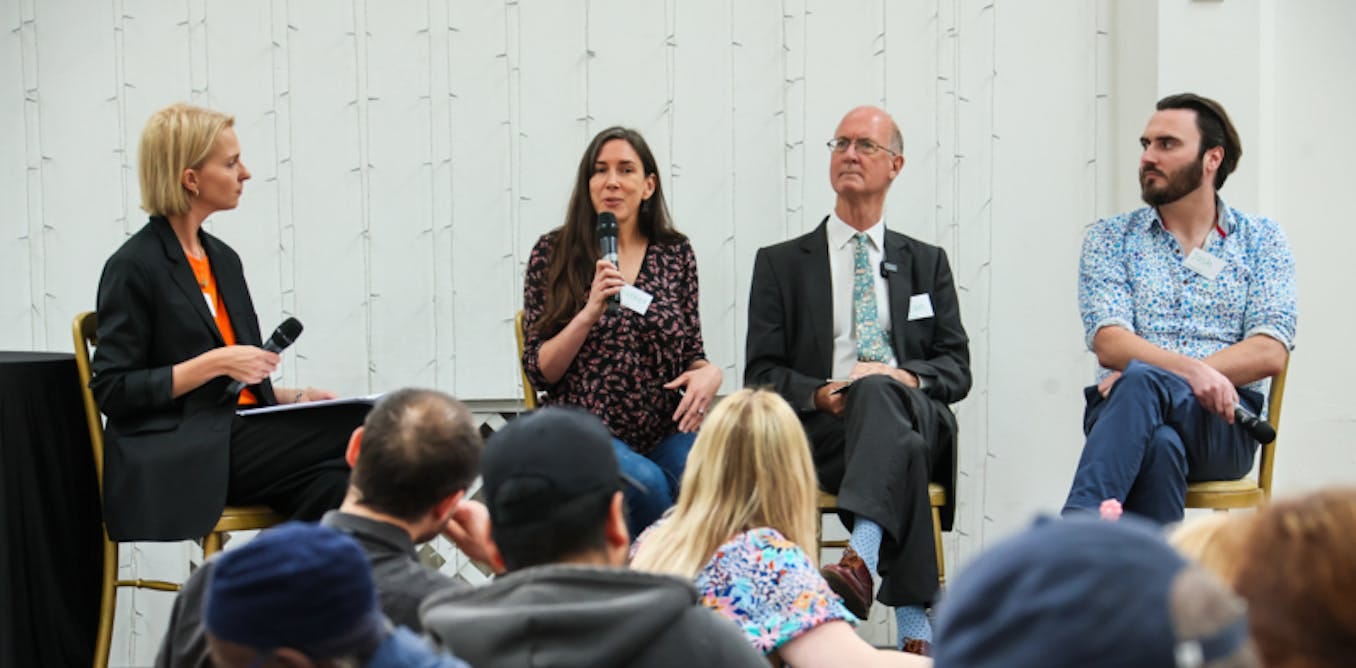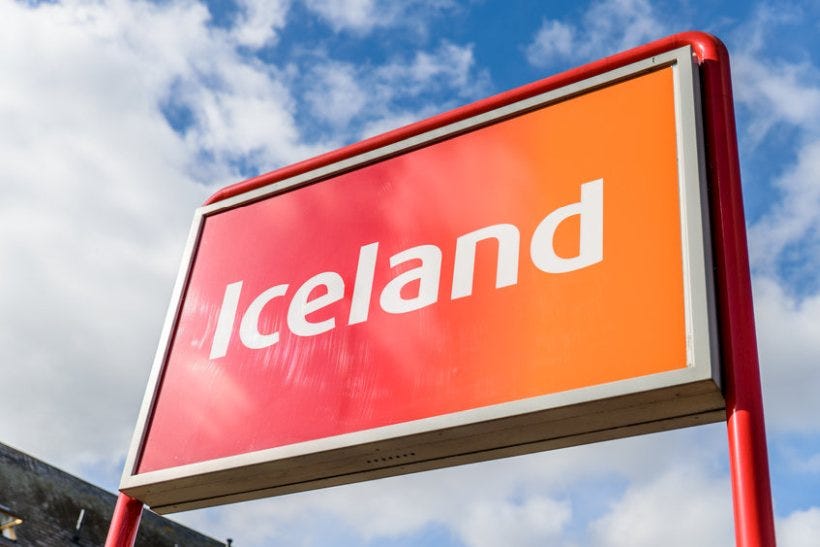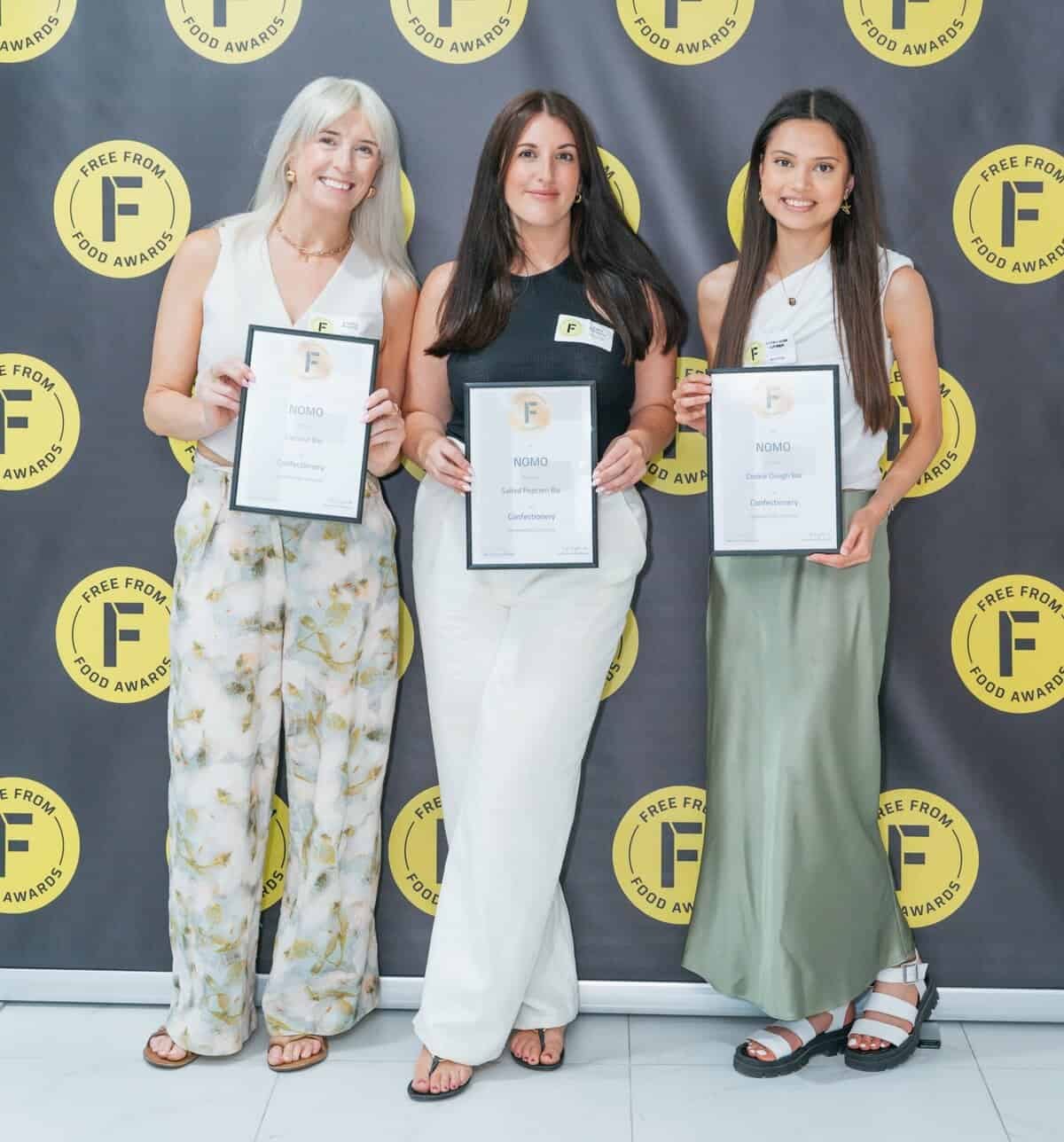Welcome to the ninety-first edition of our weekly curated articles newsletter.
Below, you will find a 120-word AI-generated summary of each article and a link to the full text.
This week’s articles:
NIH Announces End to Funding Exclusively Animal Testing Projects, Encourages Non-Animal Research Methods
Zoo Breeding Incidents Raise Urgent Call for a Roar-Free UK Policy on Big Cats
Activists Protest Outside Ipswich Hospital Over Alleged Use of Animal Incineration Energy
Animal Rights Activists Blockade Apeldoorn Abattoirs, Leading to 40 Arrests During Protest
Thailand's Coconut Industry to Cease Using Monkeys for Harvesting in Animal Welfare Agreement
Exploring Citizens' Assemblies: A New Approach to Enhancing Animal Welfare Initiatives
Iceland's Cage-Free Commitment Abandoned, Prompting Outcry from Animal Welfare Advocates
NOMO Vegan Chocolate Brand Celebrates Three Gold Awards at 2025 Free From Food Awards
Examining Veterinary Costs Through the Lens of the EU Charter: A Call for Fairness
NIH Announces End to Funding Exclusively Animal Testing Projects, Encourages Non-Animal Research Methods
The National Institutes of Health (NIH) has announced it will cease funding new research projects that focus exclusively on animal testing. This decision, articulated by Dr.
Nicole Kleinstreuer, requires all new NIH-funded research to incorporate non-animal testing methods. The NIH's initiative aligns with the HEARTS Act, which aims to promote alternatives to animal testing.
The announcement was made during a collaborative meeting with the Food and Drug Administration (FDA) focusing on reducing animal testing. Dr.
Kleinstreuer emphasized the need for sustainable solutions rather than an abrupt closure of animal labs. Cruelty Free International, a proponent of the HEARTS Act, welcomes these developments and encourages U.
S. residents to support the initiative by contacting their Representatives.
Zoo Breeding Incidents Raise Urgent Call for a Roar-Free UK Policy on Big Cats
The Born Free Foundation highlights the pressing need for a Roar-Free UK, advocating against the captivity and breeding of big cats in zoos. Following the release of their report, "Clawing at the Cages," recent tragedies involving big cats in UK zoos emphasize the detrimental effects of captivity.
Incidents include the inbreeding of lion cubs at Yorkshire Wildlife Park and the death of an Amur tiger at Marwell Zoo due to breeding attempts. A 2022 survey indicated that 76% of UK residents believe large animals should not be kept in zoos.
Born Free calls for the cessation of big cat breeding and improved welfare conditions, aiming to shift public opinion towards protecting these animals in their natural habitats.
Activists Protest Outside Ipswich Hospital Over Alleged Use of Animal Incineration Energy
Activists protested outside Ipswich Hospital, claiming that energy generated from incinerating deceased dogs used for medical research at MBR Acres in Cambridgeshire heats the hospital. The demonstration involved twenty participants from the MBR Suppliers campaign, who entered a waste facility adjacent to the hospital, demanding a meeting with management regarding alleged business ties to MBR Acres.
The activists displayed a banner stating "Ipswich Hospital Powered By Dead Puppies" and raised concerns over the treatment of dogs at the facility, which they allege breeds canines for laboratory testing. The East Suffolk and North Essex NHS Foundation Trust confirmed the protest occurred without impacting patient care but declined to comment on the allegations.
Protests are expected to continue until further action is taken.
Animal Rights Activists Blockade Apeldoorn Abattoirs, Leading to 40 Arrests During Protest
Animal rights activists from France and Germany staged protests at four abattoirs in Apeldoorn, Netherlands, on July 7, 2025, resulting in 40 arrests. The group, 269 Libération Animale, aimed to disrupt operations and raised concerns about animal welfare and the treatment of animals in the food industry.
Activists chained themselves to machinery and blocked entrances, voicing their opposition to the violence they believe animals endure. The targeted facilities primarily process veal for the French market.
This event follows previous protests at the same locations in 2021. The VanDrie group, responsible for the abattoirs, emphasized their commitment to animal health and welfare in response to the demonstrations.
Thailand's Coconut Industry to Cease Using Monkeys for Harvesting in Animal Welfare Agreement
Coconut producers in Thailand have agreed to end the use of monkeys for coconut harvesting following pressure from animal rights groups and international boycott campaigns. The practice involved around 3,000 monkeys, primarily endangered species, which are trained to harvest coconuts for the country's significant coconut industry.
Allegations regarding the poor treatment of these monkeys have prompted major companies and the Wildlife Friends Foundation Thailand to sign a Memorandum of Understanding to implement reforms. The agreement includes legislative measures to outlaw animal labor in coconut harvesting and investment in mechanized solutions.
Additionally, facilities will be established for the care of monkeys currently employed in this practice.
Exploring Citizens' Assemblies: A New Approach to Enhancing Animal Welfare Initiatives
The article discusses the potential of citizens' assemblies to enhance animal welfare. It highlights the establishment of the first citizens’ assembly focused on animal welfare by the Royal Society for the Prevention of Cruelty to Animals (RSPCA).
This initiative aims to engage a representative group of citizens who will deliberate on various animal welfare issues and make recommendations to shape future policies. The assembly addresses the pressing challenges animals face, such as climate change and industrial farming, while emphasizing the importance of public involvement in decision-making.
The process seeks to foster a more informed and inclusive dialogue around animal welfare, ultimately driving meaningful change in society's approach to its relationship with animals.
Iceland's Cage-Free Commitment Abandoned, Prompting Outcry from Animal Welfare Advocates
Iceland's decision to abandon its commitment to source only cage-free eggs by 2025 has sparked significant backlash from animal welfare groups. Despite promising this change in 2016, recent reports indicate that over 60% of Iceland's eggs still come from caged hens.
Animal welfare organizations, including Compassion in World Farming (CIWF), have criticized this reversal and called for Iceland to honor its pledge. They argue that Iceland's choice prioritizes profit over ethical standards, especially as a majority of UK supermarkets are now sourcing cage-free eggs.
In defense, Iceland cited cost concerns but faced scrutiny over the pricing of its own caged eggs compared to higher welfare alternatives. Activists are also urging government intervention to phase out cage systems.
NOMO Vegan Chocolate Brand Celebrates Three Gold Awards at 2025 Free From Food Awards
UK-based vegan chocolate brand NOMO has achieved notable recognition at the 2025 Free From Food Awards, securing three gold awards in the Confectionery category for its innovative products: the Salted Popcorn Countline Bar, praised for its deliciousness; the Cookie Dough Countline Bar, noted for its generous filling; and the Coconut Countline Bar, recognized for its commendable free-from attributes. Additionally, NOMO’s Birthday Cake XL Bar received acknowledgment in the Gifting & Celebration category.
Tara Stevens, the Senior Brand Manager, expressed excitement over the recognition and emphasized the demand for products that cater to dietary needs while focusing on taste and innovation. NOMO’s new offerings are available at several major UK retailers.
Examining Veterinary Costs Through the Lens of the EU Charter: A Call for Fairness
The article discusses the rising costs of veterinary care in Europe and North America, highlighting the lack of regulation in many EU Member States. While countries like Germany maintain price regulations, others exhibit significant price disparities and lack transparency.
The entry of investment firms into the veterinary market has led to market consolidation, impacting smaller practices and potentially raising costs for pet owners. The article suggests that the EU Charter of Fundamental Rights may play a role in addressing these issues, emphasizing principles of dignity and healthcare.
Recommendations include adopting Germany's regulatory model, easing language requirements for veterinarians, and advocating for equitable animal care access for pet owners across Europe.



